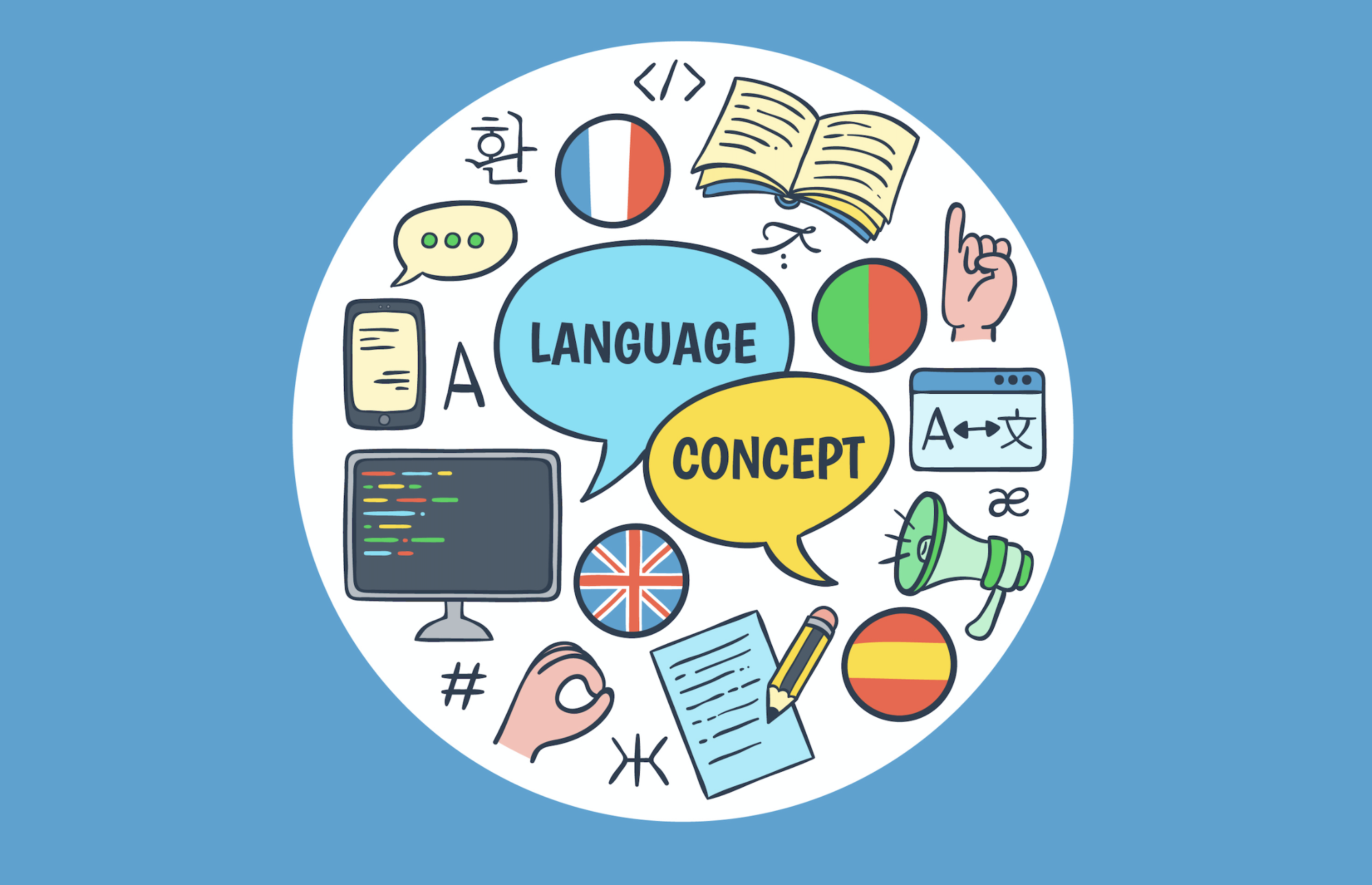We’ll explore the techniques for effective language learning and delve into the benefits of multilingual education In today’s increasingly interconnected world, the ability to speak multiple languages is not just a desirable skill but a significant advantage in both personal and professional spheres. Multilingual education—the practice of learning and teaching multiple languages—offers a wealth of benefits, from cognitive enhancement to cultural understanding. Whether you’re learning a second language for career advancement or pursuing it out of curiosity, the process of acquiring new languages brings a world of opportunity.
Techniques for Effective Language Learning

Learning a new language is a rewarding endeavor, but it can also be challenging. To succeed, it’s essential to use effective techniques that can help reinforce and retain what you learn. Below are some proven strategies that can make the language-learning process more effective:
1. Immersive Learning
One of the most powerful methods for learning a language is immersion—surrounding yourself with the language as much as possible. Immersion forces you to use the language in real-world contexts, which accelerates learning.
- Techniques for Immersion:
- Watch movies, TV shows, and videos in the target language with subtitles.
- Listen to music, podcasts, or audiobooks in the language.
- Speak with native speakers—conversation practice is key to developing fluency.
- Change your devices’ language settings to the language you’re learning.
By incorporating the language into your everyday life, you reinforce new vocabulary and grammatical structures, making learning feel more natural and intuitive.
2. Spaced Repetition
Spaced repetition is a learning technique that involves reviewing information at increasing intervals over time. This method is particularly effective for memorizing vocabulary and grammatical rules.
- Tools for Spaced Repetition:
- Use apps like Anki, Memrise, or Quizlet that use spaced repetition algorithms to help you review vocabulary and phrases at optimal intervals.
- Set a study schedule where you review old vocabulary and grammar daily, ensuring you retain what you’ve learned.
By regularly reviewing learned material, spaced repetition helps prevent forgetting and strengthens long-term retention of new language skills.
3. Practice Speaking from Day One
Many learners make the mistake of waiting until they “know enough” before speaking the language. However, speaking early and often is essential to gaining fluency. Even if you’re making mistakes, practicing speaking helps you gain confidence and improve your pronunciation.
- Techniques to Start Speaking:
- Use language exchange platforms like Tandem or HelloTalk to converse with native speakers.
- Join language meetups or online communities where you can practice speaking.
- Speak to yourself in the target language, describing your day or thoughts.
Speaking regularly helps you develop an ear for the language and internalize its rhythm and structure.
4. Learn in Context
Rather than memorizing isolated words and phrases, try to learn language in context. This means learning vocabulary and grammar structures that are relevant to real-life situations, such as ordering food, asking for directions, or discussing hobbies.
- Techniques for Contextual Learning:
- Use language textbooks that include dialogues and situational examples.
- Practice role-playing common scenarios with a language partner or tutor.
- Read books, articles, or news stories that interest you in the target language to build vocabulary in context.
By learning language through context, you make it easier to remember and apply new words and phrases in practical situations.
5. Consistency is Key
Language learning is a gradual process that requires consistent practice. Short, frequent study sessions are often more effective than long, infrequent ones. The key is to keep the language alive in your mind every day.
- Techniques for Consistency:
- Set aside time each day, even if it’s just 15-30 minutes, to practice speaking, listening, reading, and writing.
- Use a language-learning app to practice daily, even if just for a short time.
- Keep a language journal to track your progress and reinforce new vocabulary.
Consistency helps maintain momentum and ensures steady improvement in your language skills.
The Benefits of Multilingual Education
The advantages of being multilingual extend far beyond the practical application of knowing more than one language. Multilingual education offers numerous benefits, ranging from cognitive enhancement to improved career prospects and social connections. Here are some of the key benefits:
1. Cognitive Benefits
Learning multiple languages significantly enhances brain function. Multilingual education has been shown to improve cognitive abilities, such as memory, problem-solving skills, and multitasking.
- Improved Memory: Learning a language involves memorizing new words, grammatical rules, and sentence structures, which exercises the brain and improves long-term memory.
- Better Problem-Solving: Multilingual individuals are more adept at problem-solving and critical thinking due to their ability to switch between different linguistic structures and perspectives.
- Delayed Onset of Dementia: Studies have shown that multilingualism can delay the onset of cognitive decline and dementia, as it strengthens the brain’s resilience against age-related cognitive decline.
2. Cultural Awareness and Sensitivity
Learning another language opens the door to cultural understanding. It allows you to experience the world from different cultural viewpoints, making you more empathetic, open-minded, and appreciative of other cultures.
- Broader Perspectives: Language learning exposes you to the literature, art, history, and customs of other cultures, fostering cultural literacy.
- Better Communication: Multilingual individuals can bridge cultural gaps by speaking the local language, which enhances cross-cultural communication and helps build stronger relationships in both personal and professional contexts.
3. Career Advantages
In today’s globalized world, speaking multiple languages is a highly valued skill in the workplace. Multilingual individuals are in high demand, particularly in international business, diplomacy, translation, marketing, and other fields that require communication with diverse populations.
- Increased Job Opportunities: Knowing more than one language makes you a more competitive candidate for jobs and can open doors to opportunities abroad.
- Higher Earning Potential: Studies show that multilingual individuals often have higher earning potential, as their language skills are seen as an asset in many industries.
- Networking: Multilingualism allows you to connect with people from different parts of the world, expanding your professional network.
4. Enhanced Social Connections
Learning a new language enables you to connect with people from around the world. Whether you’re traveling, making new friends, or engaging in business, knowing the language of another culture deepens the relationship.
- Broader Social Circles: Multilinguals have the ability to communicate with a wider variety of people, enriching their social lives and fostering friendships in different countries.
- Improved Travel Experiences: Speaking the local language when traveling allows for a more authentic experience knowledge, as it helps you navigate cultural nuances and engage more deeply with local communities.
5. Self-Confidence and Personal Satisfaction
Successfully learning a language is a significant achievement that brings immense personal satisfaction. The process of acquiring a new language builds self-confidence, as you overcome challenges and gain mastery over a complex skill.
- Sense of Accomplishment: Being able to communicate in a new language gives you a sense of pride and empowerment, encouraging further growth and exploration.
- Cultural Immersion: Understanding a language allows you to fully immerse yourself in foreign films, literature, and music, making cultural experiences richer and more meaningful.
Conclusion
Multilingual education is a gateway to a world of opportunities. By learning multiple languages, you unlock cognitive benefits, cultural awareness, professional advantages, and deeper social connections. Whether you’re learning a language for travel, career development, or personal enrichment, the process of language acquisition enriches your life in countless ways.
By employing effective techniques like immersion, spaced repetition, and consistent practice, you can enhance your language-learning journey and reap the many rewards of multilingualism. In today’s interconnected world, the ability to communicate across language barriers is an invaluable skill, one that fosters growth, connection, and understanding. So, start learning, and let the world open up to you in new and exciting ways!
Passionate about great food and unforgettable gatherings? Explore Decology for mouthwatering recipes, hosting tips, and entertainment inspiration!

